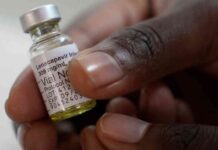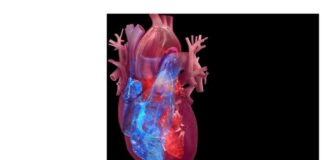World Heart Day: Hot Springs Urged to Save Lives with Heart Health
As World Heart Day approaches on September 29, the American Heart Association is teaming up with the World Heart Federation to raise awareness about the importance of heart health. This year’s theme, “Use Heart to Save Lives,” highlights the significance of proactive measures in protecting and enhancing heart health.
Cardiovascular disease (CVD) remains a major global health concern, claiming an estimated 17.9 million lives annually. In the United States alone, someone dies from cardiovascular disease every 33 seconds, underscoring the urgent need for preventive action. To address this issue, the American Heart Association emphasizes three key areas for individuals to focus on:
Learn CPR
Immediate CPR can significantly increase a person’s chances of survival during a cardiac arrest. The American Heart Association offers resources and training to help individuals learn this life-saving skill. By being prepared to act swiftly in emergencies, individuals can make a difference in saving lives within their communities.
Get a Flu Shot
Protecting oneself from the flu is crucial in reducing the risk of heart complications. This is especially important for individuals with existing heart conditions, as the flu vaccine can help prevent potential exacerbations of heart-related issues. By staying proactive with preventive healthcare measures, individuals can safeguard their heart health and overall well-being.
Understand the Statistics
With cardiovascular disease as the leading cause of death globally, it’s essential to be aware of the staggering impact it has on individuals worldwide. By understanding the prevalence and consequences of cardiovascular disease, individuals can be motivated to take steps towards prevention and early intervention. Increasing awareness of these statistics can drive action towards better heart health practices.
Dr. Jason Pelton, an interventional cardiologist at CHI St. Vincent in Hot Springs and a volunteer spokesman for the American Heart Association-Central Arkansas, stresses the importance of making small, consistent lifestyle changes to improve heart health. By incorporating regular physical activity, maintaining a balanced diet, and attending routine health check-ups, individuals can significantly reduce their risk of heart disease.
Engaging in at least 150 minutes of moderate-intensity aerobic activity per week can have a profound impact on heart health. Additionally, adopting a diet rich in fruits, vegetables, whole grains, and lean proteins while limiting saturated fats, trans fats, and sodium can help manage blood pressure and cholesterol levels. By committing to these healthy habits, individuals can take proactive steps towards protecting their hearts.
“Prevention is key,” affirms Dr. Pelton. “Small, consistent changes in lifestyle can lead to substantial improvements in heart health. We encourage everyone to prioritize their heart health not just on World Heart Day but every day.” By instilling a culture of heart-healthy practices, individuals can make a lasting impact on their overall well-being.
The American Heart Association has been a steadfast advocate for heart health for a century, pushing for scientific advancements, public health initiatives, and equitable access to care. As the organization celebrates its Centennial year in 2024, it continues to champion longer, healthier lives for all individuals. Through collaborative efforts with partners and volunteers, the American Heart Association strives to fund innovative research, advocate for public health policies, and disseminate life-saving resources.
Joining the American Heart Association in spreading awareness and taking action against cardiovascular disease can make a difference in communities across the country. To learn more about how you can get involved, visit heart.org or follow @AHAArkansas on social media using the hashtag #WorldHeartDay. By uniting efforts towards heart health, individuals can contribute to a healthier future for themselves and those around them.
In conclusion, World Heart Day serves as a poignant reminder of the importance of prioritizing heart health. By taking proactive steps, such as learning CPR, getting a flu shot, and understanding the statistics surrounding cardiovascular disease, individuals can empower themselves to make positive changes. Through small, consistent lifestyle adjustments and a focus on preventive measures, individuals can pave the way towards better heart health and longer, healthier lives. Let’s use our hearts to save lives and create a world where heart disease is no longer a leading cause of mortality.

















